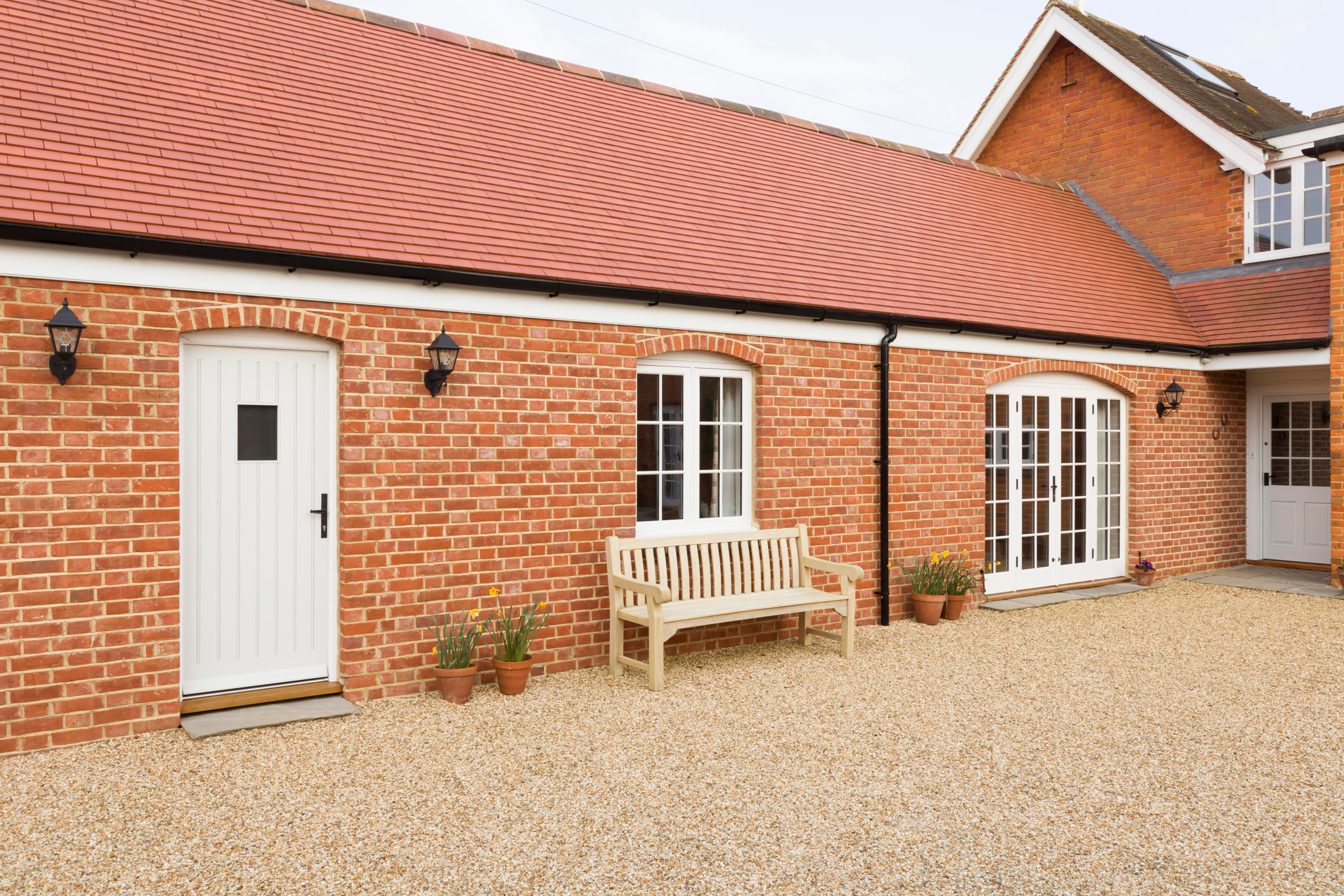Blog
- Details
- Hits: 181
So you’ve moved home, you have the keys, you’re in, and the kettle and mugs have been unpacked. Sure, you’ve got boxes here, there and everywhere, but at least you’ve finally moved and are happy!
It’s time to start a new chapter in the house of your dreams. But, you don’t want the dream to turn sour, so we suggest that after making a cup of tea and getting settled in, you should do some standard safety checks.
Why? Because you need to ensure your home is safe and isn’t going to cause you any issues.
So, what should you be checking? Well, we’ve put together a list of seven safety checks you should make when you move into your new home.
- Check the Windows and Doors
First things first, safety and security go hand in hand. Walk around your property and look at the windows and doors, noting whether they have safety catches on them or security locks. If they haven’t, put it on your urgent “to do” list. With your external doors, many new occupiers choose to change the locks as you never know where a spare key has gone in the past.
Top Tip: Write a list and work through it methodically – it’ll save you time in the long run!
- Check the Water and Electrics
Now, this really is something you should do as soon as possible. Even if your property is brand-spanking-new, you need to know it is as safe as houses.
- Look for the stop cock
- Note where the fuse box is
Should you need to take action in an emergency, you should know where important things are located. You should also look at the plug sockets and wiring to make sure all is correct.
Top Tip: If any work needs doing, you may need to get a more competent, professional tradesperson to help you – particularly with the electrics.
- Check the Appliances
Your new home may have appliances already in-situ. A washing machine, for example, or an oven. It saves you time and expense, of course, but you should check them over to ensure they are safe to use.
Top Tip: When you’re looking around a potential new home, you should always ask to see the appliances working if they are included.
- Look Around the Garden
Look at those roses there, and that lovely fence, oh and that old tree in the corner. But wait. Is your new garden actually safe?
- Are your little ones going to be able to toddle through the gate?
- Will they know the dangers of the small pond?
- Is that old tree safe, or should you get someone in to assess it and lop a few rotten branches off if necessary?
- Are there gaps in hedges where your dog could escape?
Top Tip: Do a complete audit of the garden. It’s better to spend an hour checking everything than spending a lot longer having to deal with an emergency.
- Is the House Childproof?
We don’t need to explain why child safety should be paramount. You should walk around the house to ensure everything is in place to help keep your children safe. This includes safety catches on cupboards, padlocks on areas where things like cleaning products are stored, locks on front and back doors and side gates and stairgates.
Top Tip: Little people are curious and will stick their fingers in everything! Most hardware stores carry home safety packs that include plug socket covers and cupboard catches. Keep a spare set so you are always prepared.
- Check the Smoke Alarms
Safety is a priority, and alarms alert you to danger. Make sure there are working batteries in the smoke alarms and in the carbon monoxide alarm. If it is a wired-in smoke alarm, test it. Make sure your family know what they are for, what they sound like and what they should do if they hear them.
Top Tip: Test all your alarms monthly without fail.
- Plan an Emergency Escape Route
You’ve done all the safety checks but, what happens if something goes wrong and you need to get out of your property? You should plan how you and your family will escape from the house in an emergency. You need to think about routes and who is responsible for whom, and where to meet up when you’re outside.
Top Tip: Having a plan can save you time, and in an emergency, time is of the essence. Make sure the whole family knows the plan and practice it if you need to.
Warren Powell-Richards are your local property experts emails us at This email address is being protected from spambots. You need JavaScript enabled to view it.
- Details
- Hits: 187
Once you have decided to move home and you have finalised your exact moving date, it is now time to get organised. However much you think you have to do you should expect that amount to be doubled or even tripled by the time you get to the big day itself!
From decluttering your home to creating a full inventory list, to sourcing enough cardboard boxes to build your very own Great Wall of China, there is a lot to do before you can close the doors on your old home for the last time.
Not to mention, the task of finding and booking a reliable and reputable removal company who you can trust to transport all your treasured possessions to your new home.
With this all important task, it is a case of the earlier the better with many aspects of your removal process being affected if you book too late.
If you are worried about any aspect of booking a removal company, keep reading as we have all your concerns covered and your questions answered.
Choose your moving date carefully
When you are deciding which day to move, consider not only picking a day that is most convenient for you and all other home movers in the chain, but also a day that will actually make the process of finding a high quality removable company at a competitive price more straightforward.
As a rule, the school summer holidays and bank holidays throughout the year are extremely busy times for most removal companies and therefore, if possible these times should be avoided. Other school holidays such as half terms and Easter are also likely to see higher volumes of home movers requiring removal services. Of course, if your completion date happens to fall during any of these periods there are ways you can ensure you manage to secure removal services without paying a premium!
According to comparemymove.com the second cheapest day to move home is a Wednesday. Sunday is the cheapest, but not all removal firms will be able to accommodate this.
Ensure you can get your preferred time
The further in advance you book your removal company, the more likely it is that they will be able to provide you with their services on your preferred moving date and time, and with many home movers needing to be out of a property at a specific time, this can be vital to ensuring a smooth moving out process.
If you leave booking your removal company until the last minute, you risk not being able to secure your preferred time slot with your removal company of choice.
Do not wait for a moving date confirmation
If you are struggling to pinpoint an exact moving date but want to ensure you are able to enlist the services of the best removal companies in your area, you may be able to book a provisional date with them, which you can later adjust if needed.
The best course of action is to contact your chosen removal company and provide them with an estimated moving day, while explaining that this may change. Often companies will be able to accommodate this, and you will still be able to move at the time you need to.
Allow time for a valuation
If you commission removal company quotes at least 4 to 6 weeks before your moving date, you will ensure that there is time for a full survey to be carried out and you’ll be provided with an accurate quote for your moving needs.
This can prove invaluable when you start to pack up your belongings, as you will have an idea of exactly how many boxes you will need to move efficiently.
At this time, your removal company will ask you for any information they may need with regard to access to your property, parking, and your specific removal requirements.
You will also have the opportunity to ask any questions yourself regarding additional insurance, packing services and timeframes.
Do not leave packing until the last minute
Once you have secured the services of a removal company on your preferred date and time slot, you will need to ensure that your packing is 100% complete before they arrive, unless you have booked an additional packing service with them.
Removal companies work to strict timeframes and therefore, you do not want to keep them waiting while you hurriedly throw your belongings into whatever box you can find!
It is also important to remember to disassemble any furniture and prepare white goods such as fridges, freezers and washing machines so that they are ready to go when your removal company arrives.
A trustworthy and reliable removal company will do their very best to accommodate your moving needs; from the date you need to vacate your property, to the specific services you choose to make the process less stressful.
Moving house is challenging enough, you need all the support you can get!
For expert buying, selling and moving home advice, contact our team of professionals at Warren Powell-Richards, call, email or pop into our offices.
- Details
- Hits: 226
In short, yes, it is! Research[1] into properties in the UK tells us that buyers are willing to pay more for a smart home or a property with high automation.
So, what does this news mean for sellers? It means that your smart home could have more value than your next-door neighbours. It could even sell quicker!
If you’re wondering what makes a smart home more attractive to buyers, here’s everything we know about why people are willing to pay that little bit extra for an automated home.
What Makes a Smart Home More Attractive to Buyers?
- It’s Convenient
If there’s one thing we know about technology, it’s that it makes our lives easier. From fridges that automatically order in new food, to doorbells that let you speak to visitors when you’re not at home, smart devices in our homes are undoubtedly more convenient.
As life gets busier, people are looking for solutions that make everyday tasks simpler. When it comes to the homes we live in, the same rules apply.
- Greener
Being green is a duty we’re all trying to fulfil. Research by NatWest and HIS Markit[2] shows that over half of UK homeowners are planning on making home improvements that make their lives greener. And smart homes make it easier than ever to take a step closer to living more sustainably[3] (while saving a few pounds in the process!).
From virtually controlled heating systems to smart meters, these things can make your home greener and more attractive to buyers.
- Resale Potential
Buyers are no different to sellers when it comes to thinking about resale potential. It may not be as important to them as other things, like the location or kerb appeal. But it will be up there on the list of things they’re looking out for.
Since a smart home can potentially increase the value of your home by up to £16,000[4] – and the buyer market for smart homes is on the rise – a key selling point for your home is the resale potential.
- Improved Security
If you’ve opted for smart alarms, doorbells or window sensors in your home, chances are you did this for the added security. Buyers want the same thing as you – and they’re willing to pay for it!
Barclays already predicted that by last year[5], 35% of renters looking to buy would be interested in having a home with smart security systems. If you’re targeting the first-time buyer market, having smart security systems (or at least the infrastructure that enables them to be easily installed) could make your home more attractive.
Selling Up?
For more advice on selling your home, Warren Powell-Richards are your local property experts – and we’d love to help you!
If you’re thinking about selling up, drop into one of our offices or email us at This email address is being protected from spambots. You need JavaScript enabled to view it. for a chat to find out how we can help.
- Details
- Hits: 199
Multigenerational living is becoming hugely popular in the UK.
Many older people are choosing to purchase property with their children during their retirement and this is for a variety of reasons, including care needs, financial incentives, or logistical purposes.
If your parents don’t need the structure and routine of a care home but could benefit from a helping hand from time to time, an annexe can provide an excellent solution.
What Is an Annexe?
An annexe is a self-contained building on the land of another property.
The annexe will often have the same address as the primary residence but will have its own living room, kitchen, bathroom and bedrooms. Annexes, (sometimes referred to as granny flats) are commonly used to house elderly relatives, but are sometimes alternatively occupied by teenagers or young adults who require a little more privacy.
The Benefits of an Annexe
First, an annexe allows the occupiers to remain independent.
Your parents may be perfectly fine carrying out their regular daily routine, but lack the ability to maintain a large home. An annexe allows them to live independently whilst knowing you are just a stone’s throw away when needed.
Moreover, relatives can decorate the property precisely as they wish, making it feel homely and permanent.
Additionally, multigenerational living brings the whole family together. Most modern families do not get the opportunity to spend as much time together as they wish. Busy lives often get in the way, but an annexe makes quality family time much more straightforward.
Buying v Building an Annex
Many would love the freedom to build an annexe on their property without the stress of moving house. However, the costs and logistics of this can cause a whole host of problems.
The required space, cost of planning permission, and availability of tradespeople present barriers for those hoping to build an annexe on their land. However, building your own allows you to create a structure bespoke to your family’s needs, complete with the facilities your relatives will benefit from.
Of course, properties with annexes are significantly more expensive than without. However, purchasing a ready-made home perfect for your multigenerational household is infinitely less stressful.
Financial Implications
Firstly, purchasing a home with family can present awkward conversations. You might not be in the same financial position as each other, so setting a budget is often challenging. Speaking with a mortgage advisor is always recommended at this point.
Although an annexe is technically a second home on the same plot, it does not attract the additional 3% stamp duty surcharge. This is a significant saving in comparison to purchasing two independent properties.
Additionally, there will be substantially less council tax payable. Some authorities offer a 100% discount for annexes, whereas others apply a 50% reduction.
What to Look For in an Annexe
Proximity to the Main Property
This will depend on the personal preferences of yourself and your parents. For example, some opt for annexes connected to the main property, whereas others prefer a substantial distance between the structures!
The closer the building, the easier it is to provide support, whereas a little more distance will allow for greater privacy.
Enough Space
Your parents are moving into an annexe to allow them to retain independence, and therefore having enough space to enjoy their life is crucial. There should be ample room for them to live comfortably and store their belongings.
If the property is too small, it can feel like a hotel, meaning your family will be reluctant to move.
Shared Bills
A shared water and electricity bill will simplify matters when purchasing a home with your parents. So, when viewing properties, be sure to check that this is the case.
Where an annexe was originally built for private tenants, the bills are often disconnected from each other. Where this is true, speak with the current owners and discuss how you could have this amended.
Accessibility
You are potentially purchasing a property with an annexe for your parents to live in because they can no longer look after themselves completely. Therefore accessibility is of evident importance. This might include wheelchair access or appropriate facilities in the bathroom.
Purpose Built v Add On
When purchasing a home with an already built annexe, you must learn whether this is a purpose-built home or a conversion. Where the annexe is a garage or outhouse conversion, it might not be created to a high enough standard to home your elderly relatives.
Converted structures cannot regulate temperature well, which can render them almost useless as a permanent living solution.
We’re here to help
Even though it may sound daunting, with our help, we can make the process of finding a suitable property for you and your family as easy as possible for you. At Warren Powell-Richards, we provide expert help, guidance and support every step of the way. To start the conversation, get in touch with us today by email at This email address is being protected from spambots. You need JavaScript enabled to view it..
- Details
- Hits: 202
When your home smells nice, it can make a long day at work feel so much better as you step through the door. Plus, visitors will view your home as a fresh, clean space.
Everyone knows you can light a candle and spray air freshener to make your home smell better. But there are other ways to make your space smell nice.
If you’re looking for a few cheap and simple tips to make your home smell better, here are five quick and easy things you can do.
- Open the Windows Regularly
There’s nothing like the great outdoors to make your home smell fresh!
Just five minutes once a day can boost the natural ventilation in your home and help get rid of built-up odours.
For the best results, we recommend opening your windows at night or early in the morning, as this is usually when the air is cooler.
- Wash Bedsheets
Laundry day never fails to make a home smell nice!
If you want to make your home smell better, washing your bedsheets once a week with fragrance balls can create a long-lasting, cleaner smell throughout your home.
- Clean the Floors
Washing your floors with a mop or steam cleaner regularly can leave a pleasant, long-lasting scent throughout your home.
To make your floors smell even nicer, try adding a fragrance to the cleaning water.
- Wash Living Room Pillows & Throws
We may not notice it, but odours can linger on our sofas, pillows and throws. If you have pets that sleep on the sofa or you regularly eat food in the living room, your sofa pillows can easily become full of bacteria, too. Most living room pillows and throws are machine-washable, so giving them a quick wash every now and then can leave your living room smelling fresh and clean.
- Scatter Dryer Sheets
If air fresheners and candles aren’t your style, scattering scented dryer sheets in every room is another easy way to make your home smell better.
If areas of your home are particularly odorous (like near the front door), try slipping dryer sheets into your shoes or jacket pockets. Instead of being greeted by a musty shoe or damp jacket smell, you can enjoy a more pleasant aroma when you walk through the door!
Just make sure you’re only placing dryer sheets in safe places and not anywhere that could create a hazard.
Want More Home Styling Tips?
If you want more tips on how to style your home or stage it for a sale, Warren Powell-Richards are your local property experts. Our friendly team of agents are here to help answer any questions you have about selling your Grayshott home. To arrange a valuation send us an email now at This email address is being protected from spambots. You need JavaScript enabled to view it. to arrange a call back at a time that suits you or pop into one of our offices.










ALTON | FARNHAM | GODALMING | GRAYSHOTT | HASLEMERE | LONDON